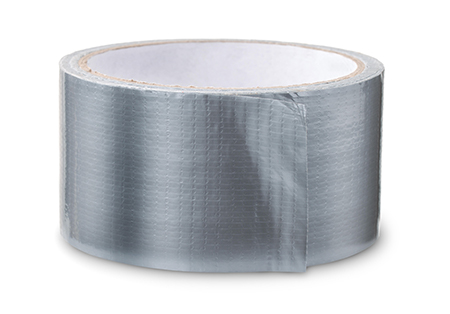 Drip. Drip. Drip. Rick, the owner of my local gym, had opened his doors less than a year ago and already there was a small leak in the roof. Whenever it rained, water would pool and then slowly drip down onto the new carpet. Lucky enough for him, the leak in the ceiling wasn’t really in the way of the equipment or gym members, so he took a bucket from the back room and caught all of the rainwater that fell. The following week, he bought a 5-gallon bucket from the hardware store and placed it under the trouble spot. When it rained that Thursday, the bucket was already in place, catching every drop and only needed replacement every few hours. For the entire summer, Rick was ahead of the rain, checking the forecast and anticipating the 5-gallon overflow on weekends. Heavier rainfalls produced more trouble spots, but Rick was on top of it, with several buckets and a system where, if he was out of the gym, one of the trainers was instructed to keep a close eye on the leaks. Now, 3 months later, the gym has 10 buckets and four leaks, yet nobody has addressed the problem on the roof.
Drip. Drip. Drip. Rick, the owner of my local gym, had opened his doors less than a year ago and already there was a small leak in the roof. Whenever it rained, water would pool and then slowly drip down onto the new carpet. Lucky enough for him, the leak in the ceiling wasn’t really in the way of the equipment or gym members, so he took a bucket from the back room and caught all of the rainwater that fell. The following week, he bought a 5-gallon bucket from the hardware store and placed it under the trouble spot. When it rained that Thursday, the bucket was already in place, catching every drop and only needed replacement every few hours. For the entire summer, Rick was ahead of the rain, checking the forecast and anticipating the 5-gallon overflow on weekends. Heavier rainfalls produced more trouble spots, but Rick was on top of it, with several buckets and a system where, if he was out of the gym, one of the trainers was instructed to keep a close eye on the leaks. Now, 3 months later, the gym has 10 buckets and four leaks, yet nobody has addressed the problem on the roof.
In a hospital Emergency Room, it’s called triage: the assignment of degrees of urgency to wounds to decide the order of treatment of a large number of patients. Triage is necessary in emergency situations, as the problem (wound, sickness, emergency) often needs a quick fix to stop the bleeding or save a life. From the Emergency Room, ideally the patients go to the right department (X-Rays, ICU, Pharmacy) to get full treatment and healed. In life, we tend to “triage” our problems, because they are distractions and get in our way. It’s also called the duct tape method: when you tape over something again and again, rather than fix it. And, it’s true, not all “problems” need our full attention. But when we, like Rick and his gym, are focused on dealing with the symptoms and not the actual problem itself, then we are doing ourselves a disservice.
Another word for triage is prioritize.
Understand what needs your attention and what doesn’t. Know when to buy a bucket and when to call a repairman. Then, when it comes time to take action, meet the issue head on and fix the problem at the source. You can’t prevent the rain, but you can keep it from falling on your head.
“Our environment, the world in which we live and work, is a mirror of our attitudes and expectations.” – Earl Nightingale
